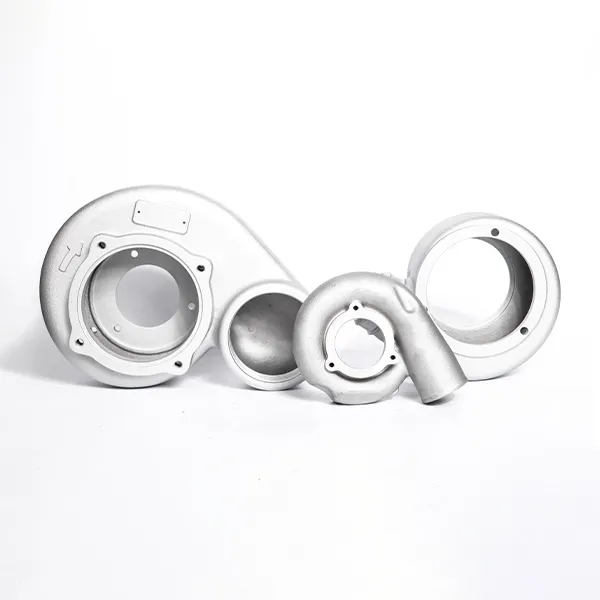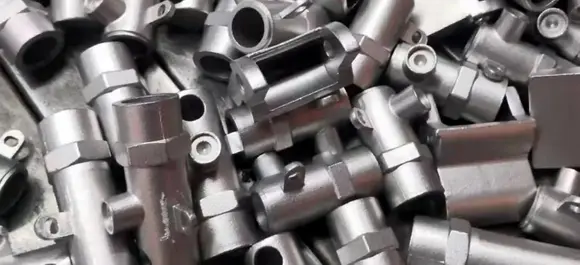Mobile:+86-311-808-126-83
Email:info@ydcastings.com
Ene . 17, 2025 00:46
Back to list
impeller brass
Impeller brass has emerged as a critical component in various industrial applications, revered for its unique combination of strength, durability, and resistance to corrosion. Predominantly used in pumps and fluid-moving mechanisms, brass impellers serve a crucial function in ensuring efficient and reliable performance.
Furthermore, the versatility of impeller brass emerges in its ability to be easily cast into complex shapes, essential for modern pump designs that demand intricate geometries to optimize flow and pressure characteristics. This ease of manufacturing facilitates not just better performance characteristics but also customization, allowing manufacturers to tailor impeller designs to specific requirements, thereby enhancing their application in specialized settings. When discussing expertise, it's crucial to emphasize the continuous advancements in alloy compositions to meet specific operational needs. Research in alloy modifying techniques, like introducing small amounts of elements such as tin or aluminum, aims to push the resilience boundaries of standard brass, hence opening avenues for its application in more aggressive environments like acidic solutions. Quality assurance remains critical, and industry standards necessitate rigorous testing of impeller brass to verify its adherence to specified mechanical attributes. These procedures safeguard against failures in high-stakes environments, fortifying confidence among end-users. Trusted manufacturers and suppliers play an instrumental role by adhering to these standards, ensuring material integrity and performance consistency. In conclusion, the adoption of impeller brass exemplifies a synergy of experience, expertise, authoritativeness, and trustworthiness in material science, making it a cornerstone in fluid system engineering. Its continued evolution promises to keep it at the forefront of solving complex challenges across industries, cementing its versatility and reliability. Whether your focus is longevity, performance, or cost-efficiency, impeller brass offers a solution that's hard to rival, promising advancements that align with future technological demands.


Furthermore, the versatility of impeller brass emerges in its ability to be easily cast into complex shapes, essential for modern pump designs that demand intricate geometries to optimize flow and pressure characteristics. This ease of manufacturing facilitates not just better performance characteristics but also customization, allowing manufacturers to tailor impeller designs to specific requirements, thereby enhancing their application in specialized settings. When discussing expertise, it's crucial to emphasize the continuous advancements in alloy compositions to meet specific operational needs. Research in alloy modifying techniques, like introducing small amounts of elements such as tin or aluminum, aims to push the resilience boundaries of standard brass, hence opening avenues for its application in more aggressive environments like acidic solutions. Quality assurance remains critical, and industry standards necessitate rigorous testing of impeller brass to verify its adherence to specified mechanical attributes. These procedures safeguard against failures in high-stakes environments, fortifying confidence among end-users. Trusted manufacturers and suppliers play an instrumental role by adhering to these standards, ensuring material integrity and performance consistency. In conclusion, the adoption of impeller brass exemplifies a synergy of experience, expertise, authoritativeness, and trustworthiness in material science, making it a cornerstone in fluid system engineering. Its continued evolution promises to keep it at the forefront of solving complex challenges across industries, cementing its versatility and reliability. Whether your focus is longevity, performance, or cost-efficiency, impeller brass offers a solution that's hard to rival, promising advancements that align with future technological demands.
Next:
Latest news
-
Why Should You Invest in Superior Pump Castings for Your Equipment?NewsJun.09,2025
-
Unlock Performance Potential with Stainless Impellers and Aluminum End CapsNewsJun.09,2025
-
Revolutionize Your Machinery with Superior Cast Iron and Aluminum ComponentsNewsJun.09,2025
-
Revolutionize Fluid Dynamics with Premium Pump ComponentsNewsJun.09,2025
-
Optimizing Industrial Systems with Essential Valve ComponentsNewsJun.09,2025
-
Elevate Grid Efficiency with High-Precision Power CastingsNewsJun.09,2025
Related PRODUCTS











